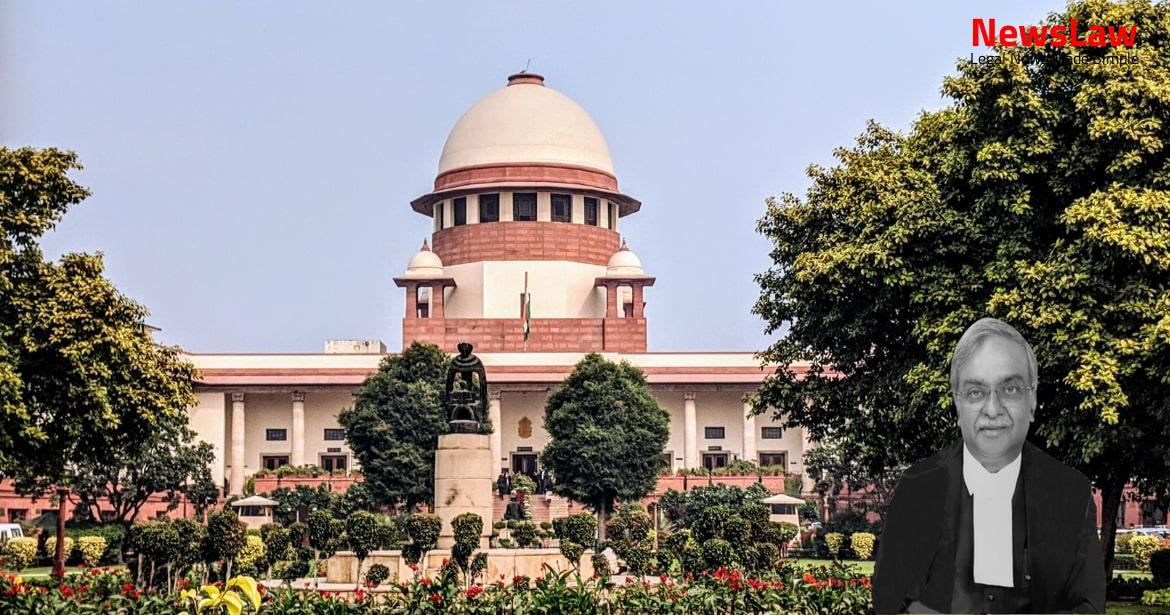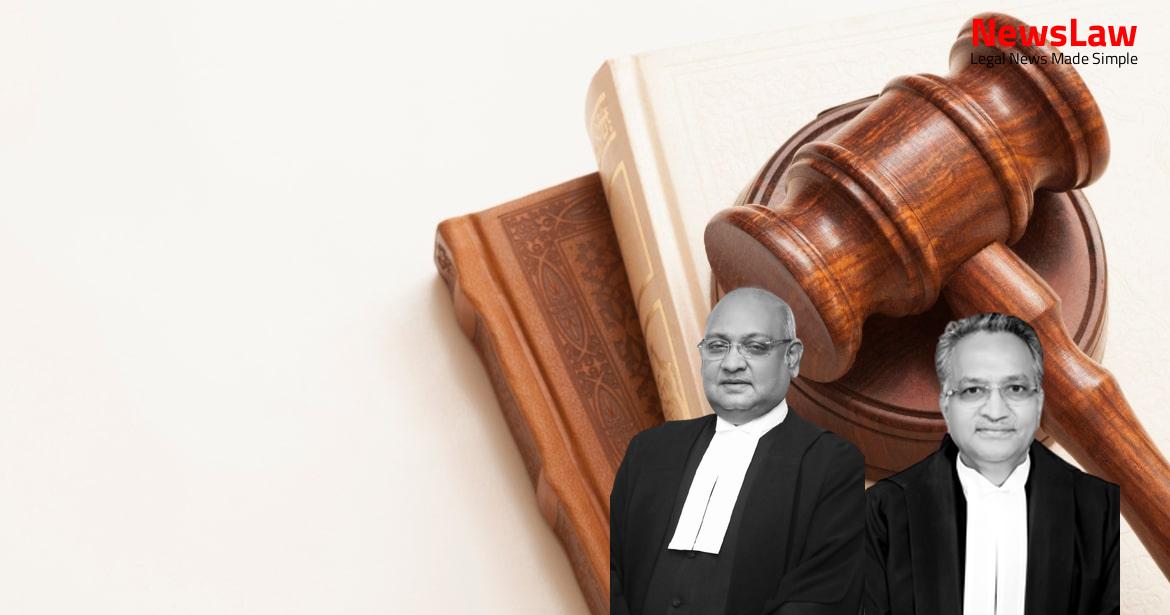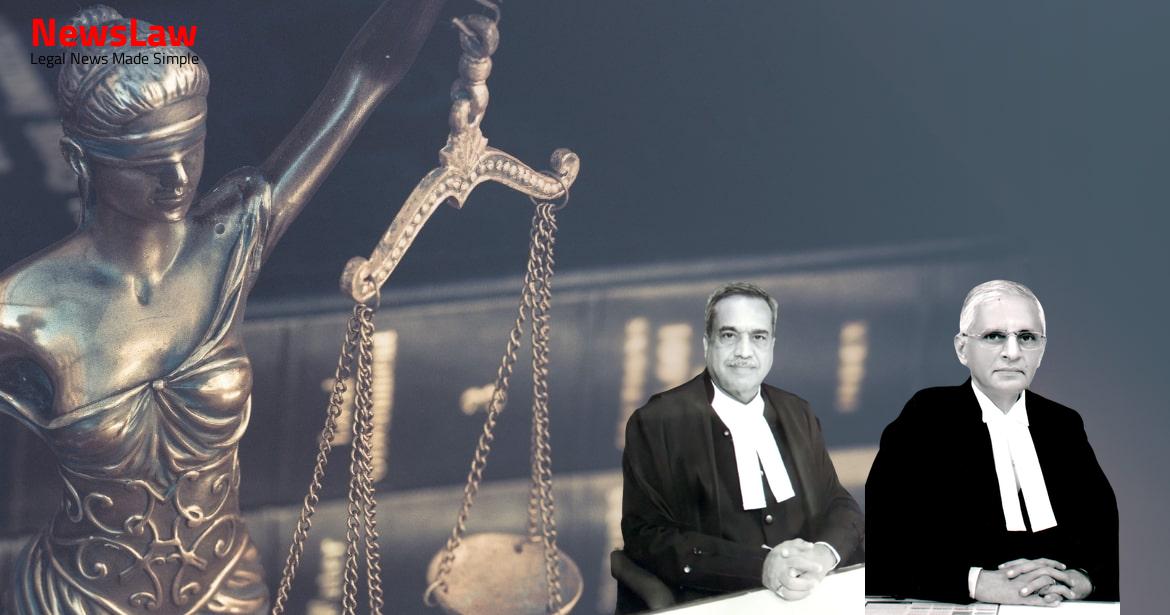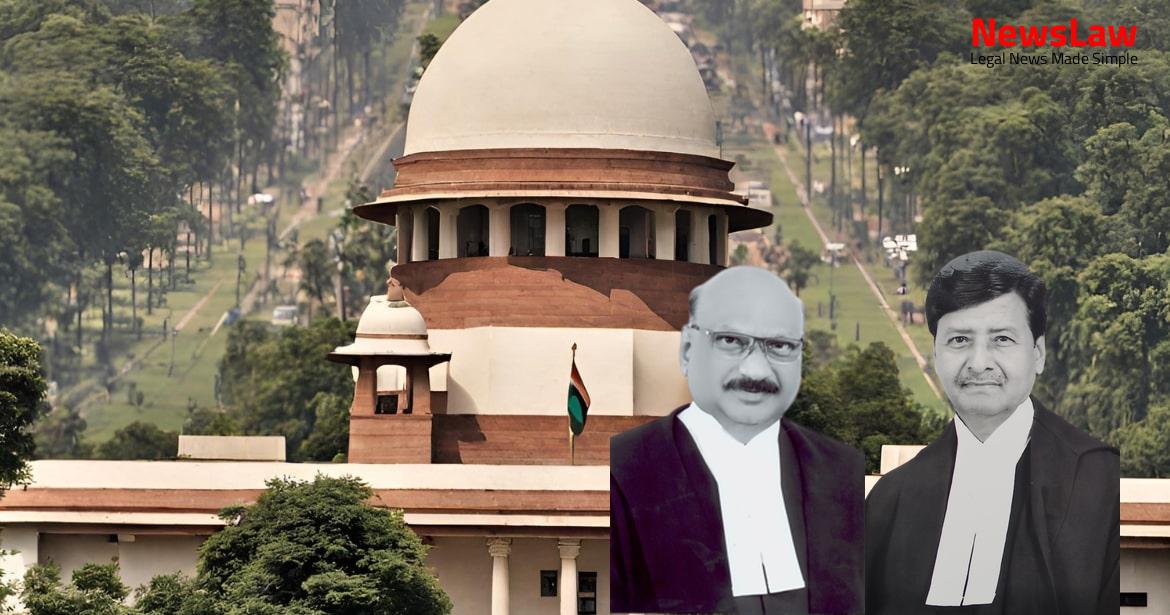The case of State of Haryana v. Ashok Khemka involves a dispute over the timelines and legal interference in performance evaluations. The State of Haryana has challenged the High Court’s decision regarding the Accepting Authority’s downgrading of Ashok Khemka’s overall grade. The High Court’s involvement has raised questions about the proper application of timelines and the extent of judicial interference in administrative decisions. Let’s delve into the complexities of this legal battle.
Facts
- The financial year 2016-2017, the period under report challenged by the applicant, had 31.12.2017 as the ultimate time limit for recording PAR.
- If PAR is not recorded by 31 December of the year in which the financial year ended, no remarks shall be recorded thereafter.
- The High Court set aside the CAT Order citing practical constraints faced by Ashok Khemka, the transparent revision of grading by the Reviewing Authority, and the pending decision on the Underlying Representation.
- The State of Haryana appealed against the High Court’s order that expunged the Accepting Authority’s opinion and restored the Reviewing Authority’s opinion and grade for Respondent No 1.
- Accepting Authority downgraded Respondent No 1’s overall grade to ‘9’ in the PAR on 31.12.2017.
- Respondent No 1 made a representation under Rule 9(2) of the PAR Rules on 12.01.2018 seeking quashing of remarks and restoration of original grading.
- Additional remarks were submitted by Reporting Authority and Reviewing Authority on 5.02.2018 and 12.02.2018 respectively.
- Despite submissions, no decision was taken by Accepting Authority regarding the Underlying Representation.
- The time limit for recording PAR was set as 31st December of the financial year, but the Schedule 2 provided the minimum/ideal period for making remarks.
- Respondent No 1 filed OA No 60/1058/2018 before CAT seeking deletion of remarks by Accepting Authority and restoration of original grades by Reviewing Authority.
- CAT dismissed the OA on 03.12.2018 citing Rule 5(1) of PAR Rules and Paragraph 9.4 of Appendix-II of the Guidelines.
Also Read: Challenges in Extra Judicial Confession and Witness Testimony
Arguments
- No prejudice was caused to Respondent No 1 due to a delay in timelines prescribed under the PAR Rules.
- Performance appraisal reports of Respondent No.1 did not raise any grievances or allegations of prejudice against the Appellant.
- The Accepting Authority, the Chief Minister of Haryana, revised the overall grades and remarks of Respondent No 1 in an impartial and objective manner.
- The overall grade ‘9’ awarded to Respondent No 1 is sufficient for empanelment/promotion purposes.
- Timelines prescribed under Rule 5(1) of the PAR Rules were met by the State of Haryana for Respondent No 1’s PAR.
- Mr. Khemka argued that Respondent No 1 has been prejudiced due to non-decision on the Underlying Representation under Rule 9(7B) of the PAR Rules.
- Respondent No 1 has only one year of service left before superannuation, adding to the urgency of the matter.
- Mr. Rohatgi countered that the Underlying Representation is pending consideration by the Accepting Authority as per the PAR Rules.
- It was emphasized that the High Court should not have interfered with the CAT Order in SLP (C) No 13972 of 2019.
- Mr. Khemka pointed out that timelines in the Schedule are crucial, and the Accepting Authority should not have revised the grades after the timeline expiry.
- It was argued that the Accepting Authority acted arbitrarily and downgraded Respondent No 1’s overall grade without proper appreciation of the record material.
- Reference was made to the case Dev Dutt v. Union of India (2008) 8 SCC 725 to support the contention against the Accepting Authority’s actions.
- In conclusion, it was urged that the Impugned Order should not be set aside considering the circumstances.
Analysis
- Timelines prescribed under the PAR Rules are crucial for the evaluation process of public functionaries.
- Compliance with the timelines is mandatory to ensure a fair and timely assessment of the officers.
- Adherence to timelines ensures that evaluations are completed within the stipulated period for effective decision-making.
- Contravention of timelines does not invalidate the Performance Appraisal Report (PAR) but may not be met with immediate consequences.
- Judicial interference in administrative evaluations should consider the expertise and domain knowledge required for such assessments.
- Non-compliance with a mandatory provision could render the entire proceedings invalid.
- Judiciary must exercise restraint and avoid unnecessary intervention in administrative decisions of the executive, especially when specialized expertise is involved.
- Constitutional Courts are expected to exercise restraint and not substitute their views for that of the administrative authority.
- Mere disagreement with the decision-making process is not enough for interference.
- High Court, under Article 226 of the Constitution, is not an appellate court against findings of fact by experts.
- High Court should not interfere with findings based on appreciation of facts and evidence.
- The High Court should not have interfered in a matter that is pending before the Accepting Authority.
- The Accepting Authority has not yet given its decision on the representation in question.
- The Division Bench of the High Court made a legal error in getting involved in this matter prematurely.
Decision
- The judgement of the Division Bench of the High Court has been set aside.
- The Accepting Authority is directed to take a decision on the Underlying Representation within 60 days.
- Respondent No 1 is granted liberty to seek further legal remedies.
- Any pending application(s) have been disposed of.
- The timelines as per the Schedule have been contravened.
Case Title: THE STATE OF HARYANA Vs. ASHOK KHEMKA (2024 INSC 190)
Case Number: C.A. No.-003959-003959 / 2024



